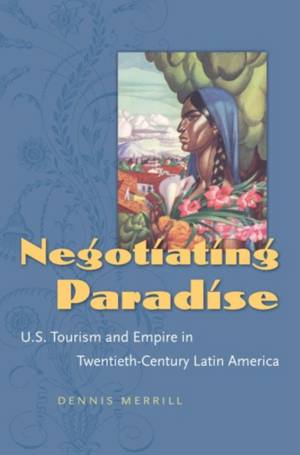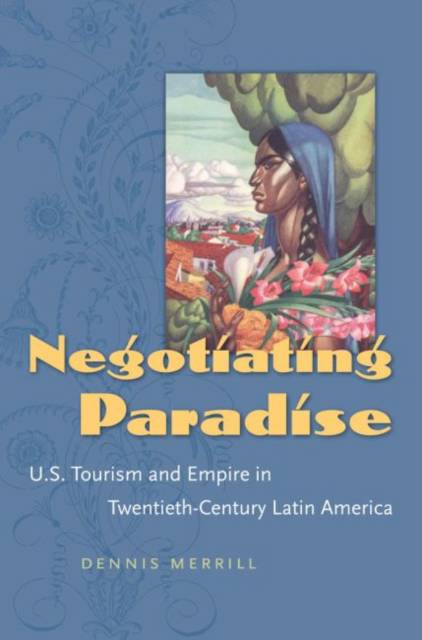
Bedankt voor het vertrouwen het afgelopen jaar! Om jou te bedanken bieden we GRATIS verzending (in België) aan op alles gedurende de hele maand januari.
- Afhalen na 1 uur in een winkel met voorraad
- In januari gratis thuislevering in België
- Ruim aanbod met 7 miljoen producten
Bedankt voor het vertrouwen het afgelopen jaar! Om jou te bedanken bieden we GRATIS verzending (in België) aan op alles gedurende de hele maand januari.
- Afhalen na 1 uur in een winkel met voorraad
- In januari gratis thuislevering in België
- Ruim aanbod met 7 miljoen producten
Zoeken
Negotiating Paradise
U.S. Tourism and Empire in Twentieth-Century Latin America
Dennis Merrill
Paperback | Engels
€ 60,95
+ 121 punten
Omschrijving
Accounts of U.S. empire building in Latin America typically portray politically and economically powerful North Americans descending on their southerly neighbors to engage in lopsided negotiations. Dennis Merrill's comparative history of U.S. tourism in Latin America in the twentieth century demonstrates that empire is a more textured, variable, and interactive system of inequality and resistance than commonly assumed.
In his examination of interwar Mexico, early Cold War Cuba, and Puerto Rico during the Alliance for Progress, Merrill demonstrates how tourists and the international travel industry facilitated the expansion of U.S. consumer and cultural power in Latin America. He also shows the many ways in which local service workers, labor unions, business interests, and host governments vied to manage the Yankee invasion. While national leaders negotiated treaties and military occupations, visitors and hosts navigated interracial encounters in bars and brothels, confronted clashing notions of gender and sexuality at beachside resorts, and negotiated national identities. Highlighting the everyday realities of U.S. empire in ways often overlooked, Merrill's analysis provides historical context for understanding the contemporary debate over the costs and benefits of globalization.
In his examination of interwar Mexico, early Cold War Cuba, and Puerto Rico during the Alliance for Progress, Merrill demonstrates how tourists and the international travel industry facilitated the expansion of U.S. consumer and cultural power in Latin America. He also shows the many ways in which local service workers, labor unions, business interests, and host governments vied to manage the Yankee invasion. While national leaders negotiated treaties and military occupations, visitors and hosts navigated interracial encounters in bars and brothels, confronted clashing notions of gender and sexuality at beachside resorts, and negotiated national identities. Highlighting the everyday realities of U.S. empire in ways often overlooked, Merrill's analysis provides historical context for understanding the contemporary debate over the costs and benefits of globalization.
Specificaties
Betrokkenen
- Auteur(s):
- Uitgeverij:
Inhoud
- Aantal bladzijden:
- 352
- Taal:
- Engels
Eigenschappen
- Productcode (EAN):
- 9780807859049
- Verschijningsdatum:
- 1/09/2009
- Uitvoering:
- Paperback
- Formaat:
- Trade paperback (VS)
- Afmetingen:
- 155 mm x 234 mm
- Gewicht:
- 517 g

Alleen bij Standaard Boekhandel
+ 121 punten op je klantenkaart van Standaard Boekhandel
Beoordelingen
We publiceren alleen reviews die voldoen aan de voorwaarden voor reviews. Bekijk onze voorwaarden voor reviews.









